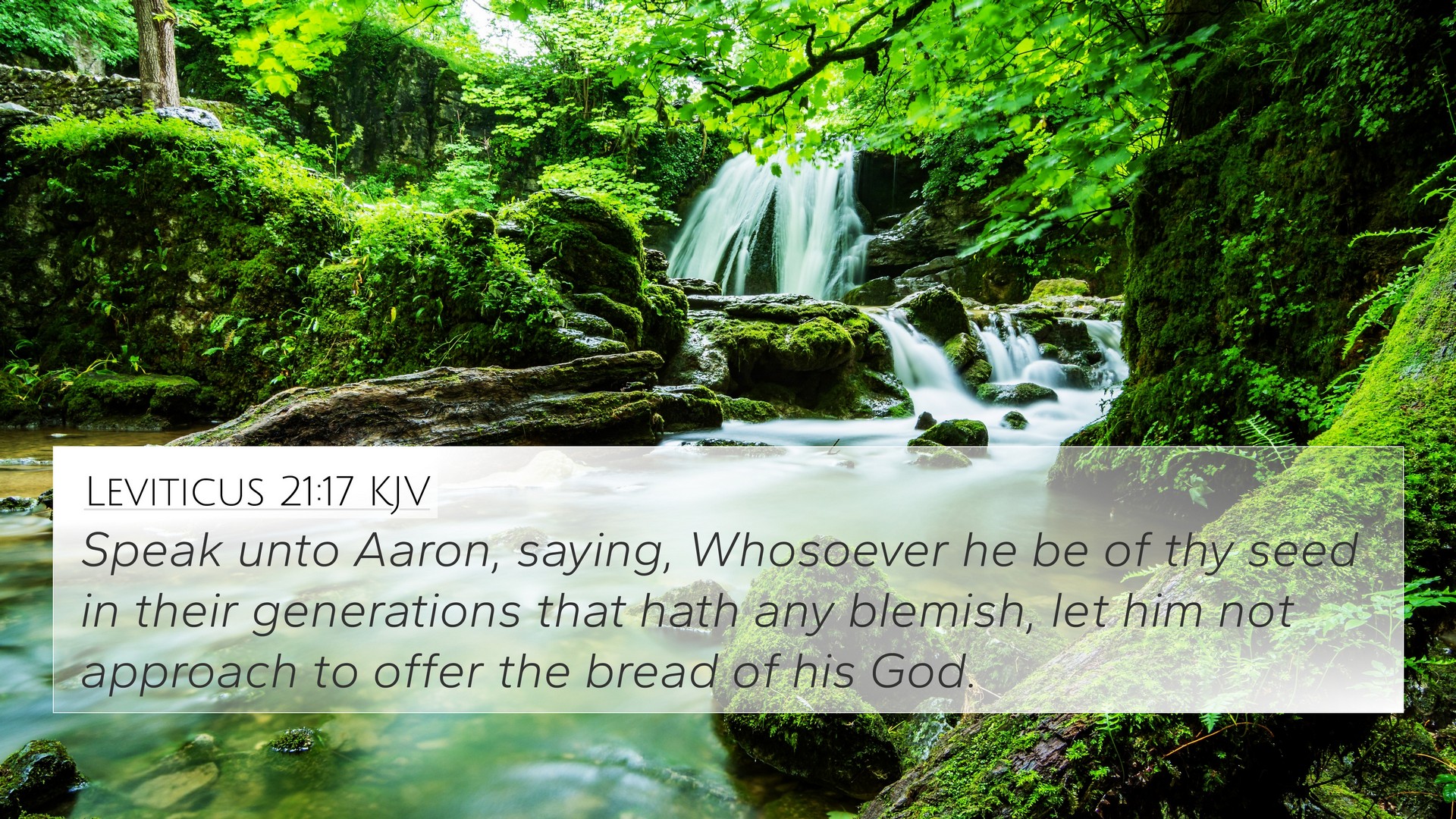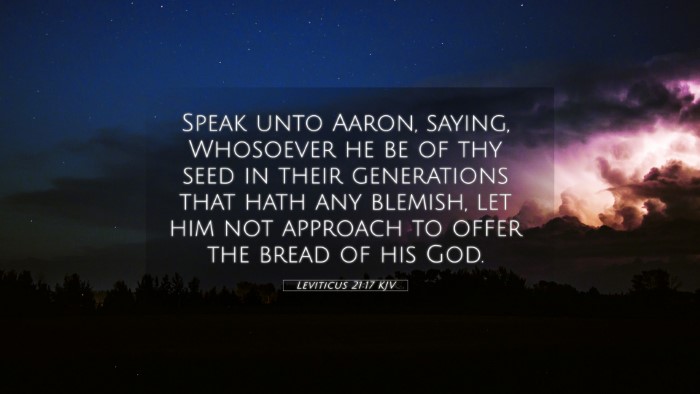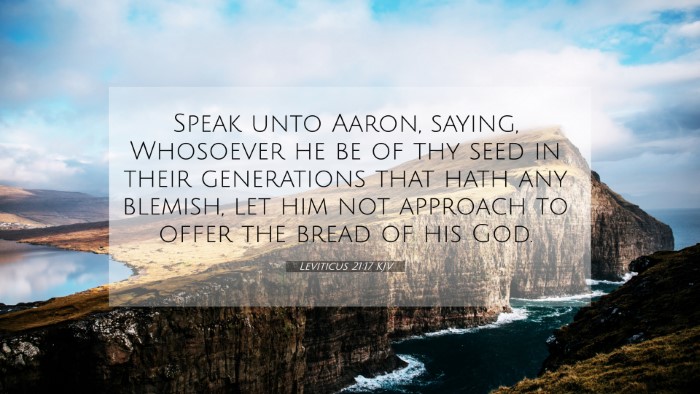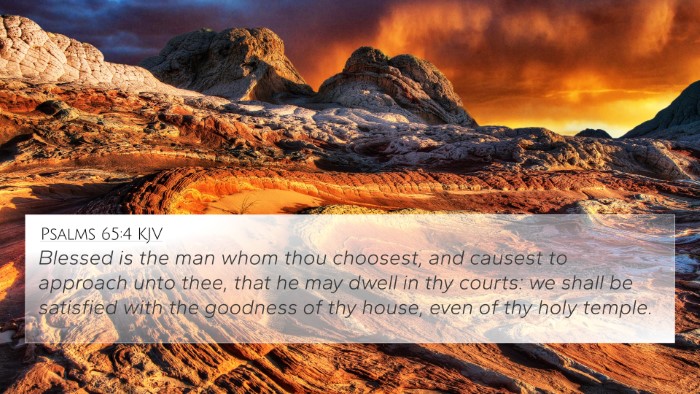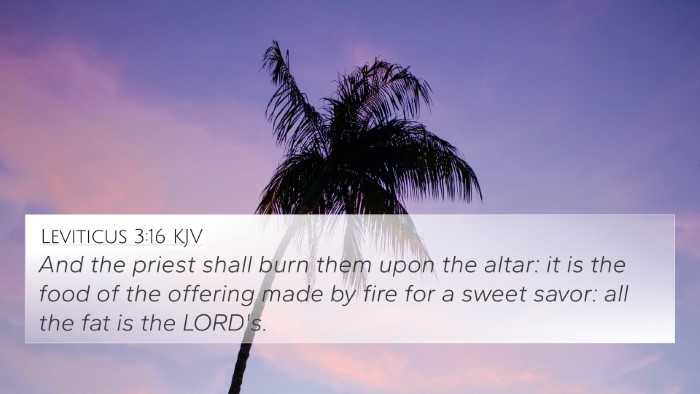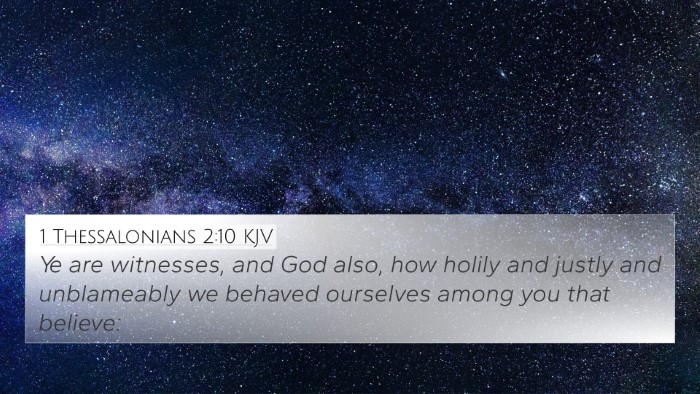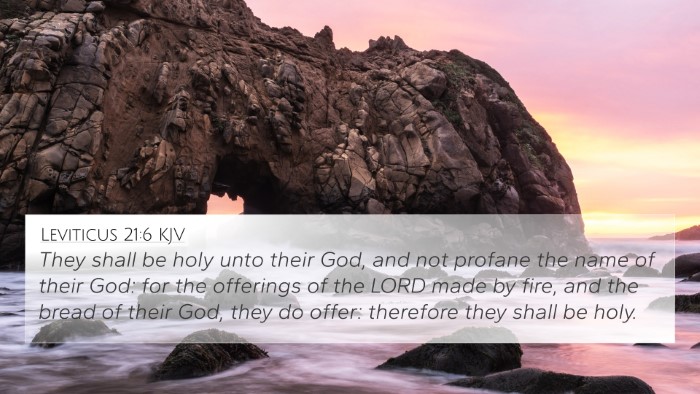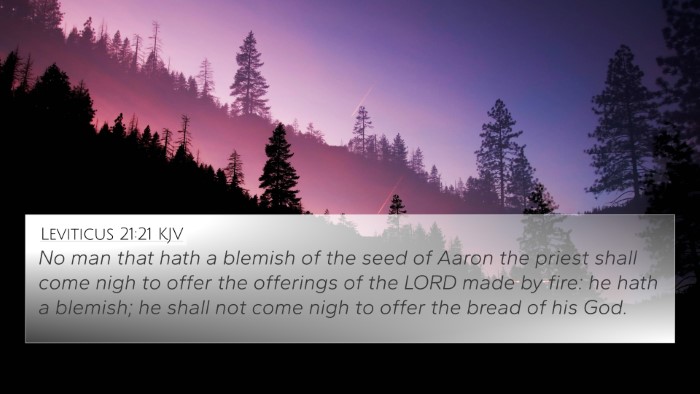Understanding Leviticus 21:17
Leviticus 21:17 states, "Speak to Aaron, saying: 'No man of your descendants in succeeding generations who has any defect may approach to offer the bread of his God.' This verse underscores the stringent requirements for the priests in terms of physical perfection, which symbolizes the holiness that God expects from those serving Him.
Summary of Key Insights
This verse is a part of a larger context regarding the rules that govern priestly conduct and eligibility. The following commentaries provide a rich understanding of its meaning:
- Matthew Henry: Henry explains that this command reflects God's demand for purity and excellence among those who serve Him. The physical defects symbolize spiritual shortcomings that must be avoided among God’s priests.
- Albert Barnes: Barnes emphasizes that these regulations serve a dual purpose: respecting the sanctity of God's offerings and the priestly role in mediating God's grace to the people. The defects mentioned may also represent moral and spiritual imperfections.
- Adam Clarke: Clarke notes that while the outward appearance of the priests is important, the heart's condition is ultimately what God desires. He also points out the cultural importance of physical wholeness in the ancient Near Eastern context.
Thematic Connections
Leviticus 21:17 connects with various biblical themes and verses:
- Hebrews 7:26-27 - Discusses the perfection of Christ as our High Priest.
- 1 Peter 2:9 - A call to be a chosen people, emphasizing holiness.
- Leviticus 22:20-21 - Excludes animals with defects for offering, paralleling the priest's qualifications.
- 1 Corinthians 9:27 - The importance of discipline in one's spiritual life.
- Matthew 5:48 - The call to be perfect as the Heavenly Father is perfect.
- James 1:27 - The emphasis on purity and moral uprightness.
- 2 Timothy 2:21 - Being a vessel for honor, sanctified for good works.
Why This Matters
Understanding Leviticus 21:17 is not just an exercise in Old Testament law; it invites deeper reflection on the nature of holiness. The standards set for priests foreshadow the ultimate priesthood of Christ who fulfills the law perfectly.
The Importance of Cross-referencing
To fully grasp the depth of this verse, one should engage in scriptural cross-referencing. This method helps uncover connections and parallels within the Bible. Below are tools and resources for effective cross-referencing:
- Bible Concordance - An essential tool for finding keywords and related verses.
- Bible Cross-reference Guide - A dedicated guide to help explore themes and connections.
- Cross-reference Bible Study - Methods to study scripture in relation to one another.
- Bible Chain References - Tracing themes through linked verses across books.
- Comprehensive Bible Cross-reference Materials - Includes software tools and print resources.
Developing Understanding through Cross-references
To deepen your understanding of Leviticus 21:17, consider these questions:
- What verses directly relate to the concept of holiness in the Bible?
- How does the priesthood of Aaron compare to the priesthood of Christ?
- What lessons can we draw from the requirements of the Old Testament regarding our own lives?
Exploring Biblical Connections
Finding cross-references in the Bible can open doors to rich theological insights. Here are some methods to identify these connections:
- Identify themes or keywords to search across scripture.
- Examine how certain New Testament teachings reflect or fulfill Old Testament principles.
- Engage in comparative studies of Pauline epistles and their ties to the Law.
Conclusion
The verse from Leviticus 21:17, while seemingly straightforward, invites believers into a profound exploration of God’s standards for holiness and service. By using cross-referencing and comparative analysis, one can uncover the intricacies of God’s Word and draw deeper spiritual truths from these connections.
